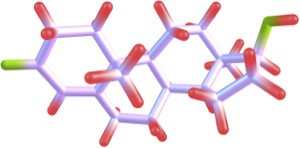
Two recently published trials, which have been sensationalized by the news media, suggest that testosterone replacement therapy may increase the risk of heart disease and/or stroke.
These were poorly designed studies which conflict with numerous previous medical trials which showed the beneficial effects of testosterone on the heart and that a low testosterone level in males is actually associated with an increased risk for heart disease.
These sensationalized studies were not randomized, double-blind, placebo-controlled interventional studies, but rather they were simply a retrospective sift through hospital and pharmacy data to look for associations.
They looked at men who were given testosterone prescriptions and who had heart attacks or strokes after filling at least one prescription for testosterone.
What they failed to look at are the key factors in healthy hormonal balance:
What kind of testosterone was used?
How was it dosed? And was it dosed consistently?
Did the patients actually use the testosterone as prescribed? We don’t know any of this because it was not followed up. They were included in the study if they ever filled a prescription for testosterone, even if only filled once.
What did their follow-up bloodwork show? We don’t know.
Did they actually achieve youthful and balanced hormone levels? Or did they take just enough to suppress their natural production and end up with lower testosterone levels than when they started? We don’t know because they never tested the testosterone levels.
Was their estradiol out of balance with the testosterone? Did they have elevated hematocrit levels? Both of these scenarios can lead to increased risk of blood clotting. We don’t know because they were never tested.
Regarding the statistical methods of the most recent study: I’m not exactly sure how they analyzed their data. This is the unfortunate thing with research. You can analyze data any way you wish to suit your purpose. They used something called “Kaplan-Meier estimated cumulative percentages with events.”
But here’s what the raw data shows:

Of the 7,486 patients not receiving testosterone therapy, 681 died (9 percent), 420 had heart attacks (5.6 percent), and 486 had strokes (6.5 percent).
Among the 1,223 patients receiving testosterone therapy, 67 died (5.4 percent), 23 had heart attacks (1.9 percent), and 33 had strokes (2.7 percent).
It looks to me like a lot fewer events in the testosterone group!
So I guess it just really depends on how you look at the data doesn’t it? I prefer to look at the raw numbers.
The whole goal of testosterone optimization is to restore youthful blood levels of the hormone and to be sure it remains in proper and healthy balance with all the other hormones in the body. More than likely, no man treated with testosterone in a regular primary care clinic, and especially a VA clinic, was ever properly balanced. Doctors all over the world are prescribing testosterone without addressing the balancing effect between it and all the other hormones.
Most particularly of interest to me is what were these men’s estradiol levels? One of the biggest problems aging men face is the conversion of their testosterone into estrogen by aromatase. Aromatase is an enzyme whose activity is enhanced by obesity, alcohol and caffeine consumption (via increased activity of the aromatase enzyme). Do we think that some of these veterans had any of these risk factors for increased aromatase activity? I’m guessing probably so.
Although some conversion of testosterone to estradiol is essential for health, too much conversion can have devastating consequences for men. If estradiol was not monitored during testosterone administration, this error means that the men receiving testosterone could have experienced a simultaneous rise in estradiol levels. This in turn can easily lead to increased ability of the blood to clot, among other things, and is not considered healthy for men. We all know that anything that increases clotting ability has a definite effect on increased risk of heart attacks. Cholesterol plaque rupture with subsequent clotting cascade is well-known to be a mechanism of sudden arterial blockage.
Monitoring estradiol levels is one of the critical aspects of a healthy, balanced hormone restoration plan for men. In these negative studies there was no report of the subjects’ estradiol levels. And my suspicion is that many, if not most, of these men probably had elevated (unnaturally high) estradiol levels – which was not accounted for, or treated.
In addition, if these men were accidentally over-dosed with testosterone, this could lead to erythrocytosis (an elevation in hematocrit or the concentration of red blood cells) which can also theoretically be associated with an increased risk of cardiovascular events. Hematocrit levels were not monitored or treated in these two negative trials.
Finally, these men were veterans with already-established heart disease. If you are a man reading this article and you are not an unhealthy veteran with already-established heart disease proven by angiography, then the results of these negative studies probably do not apply to you. There is no way that in three months’ time testosterone could change a healthy heart into an unhealthy one or to change clear arteries into clogged ones. This was not a testosterone effect, but perhaps taxing of a system that was already on edge and ready to break at any moment.
The results of these studies run counter to a large body of literature, published over the last 20 years, that supports testosterone treatment as an important therapy which can improve cholesterol levels, decrease blood sugar levels, reduce body fat and increase lean muscle mass, all factors that would reduce the risk of heart disease.
A new review article published December 2013 in the Journal of the American Heart Association with the goal of providing a comprehensive review of the clinical literature that has examined the associations between testosterone and cardiovascular disease. Well over 100 studies were reviewed, and the authors concluded that low levels of testosterone are associated with higher rates of mortality and cardiovascular-related mortality, higher rates of obesity and diabetes. Additionally, the severity of disease correlated with the degree of testosterone deficiency. Testosterone therapy has been shown to relax coronary arteries and improve ability of patients with congestive heart failure to exercise. Testosterone therapy has been shown to lower blood sugar in diabetics and to lower body mass index in obese patients. Finally, studies have associated lower testosterone levels with thicker walls of some of the major blood vessels. This thickening increases the risk of atherosclerosis thus leading researchers to conclude that low levels of testosterone increase the risk for atherosclerosis. All of these factors point to the conclusion that optimal testosterone levels decrease the risk of cardiovascular disease.
The results of the current study, despite all the news media coverage, are essentially meaningless. Testosterone therapy can be an excellent way to help men to enhance their quality of life and decrease their risk of multiple diseases, as shown in many studies. Importantly though, the therapy should not be undertaken lightly and should be properly monitored by a hormone specialist that is well versed in the risks of therapy, the art of balancing testosterone with all other hormones, and the treatment of possible side effects – in order for patients to have optimal benefits from the therapy.
For more on this topic, read this article: http://ow.ly/tm75C












what about the testosterone effects on prostate gland and the convertion to DHT via 5a reductase enzyme?eventualy does TRT affects negetively the prostate gland and proper urination?